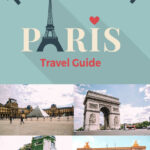Cuba, a vibrant island nation with a rich history and culture, has become an increasingly popular destination for travelers worldwide. However, for Americans, the question of safety often arises due to the complex relationship between the United States and Cuba. If you’re wondering “Is It Safe To Travel To Cuba As An American?”, this guide provides essential information to help you plan your trip with confidence.
Understanding the Current Travel Landscape for Americans
Despite political tensions, Cuba is generally considered a safe country for tourists, including Americans. Millions of travelers from around the globe visit Cuba each year, drawn to its stunning beaches, historic cities, and unique cultural experiences. The Cuban government prioritizes the safety of tourists, and violent crime is relatively rare in tourist areas.
However, it’s important to be aware of the specific safety considerations for American travelers:
Petty Crime
Like any popular tourist destination, petty crime such as pickpocketing and scams can occur in Cuba, particularly in crowded areas and tourist hotspots like Havana’s Old City or Varadero beach. To minimize your risk:
- Be aware of your surroundings: Pay attention to your belongings, especially in crowded places.
- Avoid displaying expensive jewelry or electronics: Don’t make yourself an obvious target for thieves.
- Keep valuables secure: Use hotel safes for passports, extra cash, and valuable items.
- Be cautious with unfamiliar individuals offering assistance: Some scams involve overly friendly people offering help and then demanding payment or trying to steal from you.
Health and Medical Care
While Cuba has a reputation for its healthcare system, the reality for tourists can be different. Medical facilities may not meet US standards, and access to certain medications or treatments might be limited.
- Travel insurance is essential: Ensure your travel insurance policy covers medical emergencies and evacuation from Cuba.
- Pack necessary medications: Bring any prescription and over-the-counter medications you may need, along with copies of prescriptions.
- Practice food and water safety: Drink bottled water, eat at reputable restaurants, and be cautious with street food.
- Consult your doctor: Before traveling, discuss necessary vaccinations and health precautions for Cuba.
Political Situation and Government Interactions
While generally safe, Cuba has a different political system than the United States, and it’s crucial to be mindful of local laws and regulations.
- Avoid political discussions: Refrain from engaging in political debates or criticisms of the Cuban government in public.
- Be aware of surveillance: It’s possible that tourist areas are monitored, so be discreet in your conversations and activities.
- Understand travel restrictions: US citizens are subject to specific regulations regarding travel to Cuba. Ensure you are traveling under one of the authorized travel categories defined by the US government. These categories currently include family visits, educational activities, professional meetings, journalistic activity, and support for the Cuban people, among others. Tourism, as strictly defined, is still prohibited. However, “support for the Cuban people” is a broad category that allows for independent travel while engaging in activities that support Cuban individuals and businesses, rather than government entities.
- Carry your passport and visa at all times: Be prepared to present them to authorities if requested.
Currency and Financial Transactions
The Cuban financial system can be confusing for Americans due to US sanctions.
- US credit and debit cards generally do not work in Cuba: Plan to bring enough cash in Euros, Canadian dollars, or British pounds and exchange it for Cuban pesos (CUP) or freely convertible currency (MLC) upon arrival.
- Be aware of dual currency system: Cuba operates with two currencies: CUP (Cuban Peso) and MLC (Freely Convertible Currency). Understand which currency is accepted where and be mindful of exchange rates.
- Budget carefully: Cash is king in Cuba, so plan your budget accordingly and bring enough for your entire trip.
Tips for a Safe and Enjoyable Trip to Cuba
- Do your research: Understand the current travel regulations, safety considerations, and cultural norms before you go.
- Stay in reputable accommodations: Choose hotels or casas particulares (private homestays) that are licensed and well-reviewed.
- Learn basic Spanish: While some Cubans in tourist areas speak English, knowing basic Spanish phrases will enhance your experience and help you navigate situations more easily.
- Connect with locals: Engage with Cuban people respectfully and learn about their culture and way of life. This is not only enriching but can also provide you with valuable insights into local safety and conditions.
- Share your itinerary with someone at home: Let family or friends know your travel plans and check in regularly.
- Register with the US Embassy: Although the US Embassy in Havana has limited operations, registering your trip with the State Department’s Smart Traveler Enrollment Program (STEP) can help in case of emergencies.
Conclusion: Travel to Cuba with Awareness and Enjoyment
Traveling to Cuba as an American is generally safe, and the rewards of experiencing this unique country are immense. By being informed, prepared, and respectful of local customs and regulations, you can have a safe and unforgettable adventure. While petty crime and other minor issues can exist, with common sense precautions and awareness, your trip to Cuba can be as safe and enriching as traveling to any other international destination. So, pack your bags, embrace the Cuban spirit, and get ready for an incredible journey!

